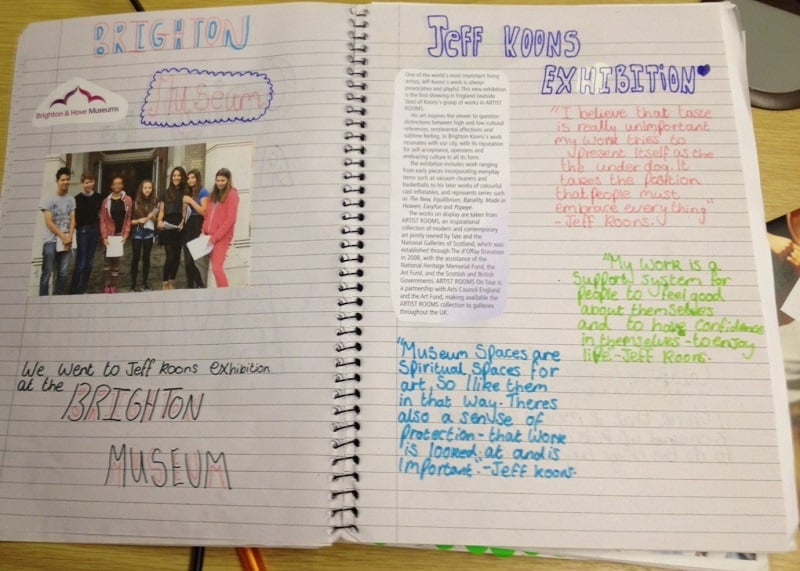
Case study: Brighton & Hove Youth Arts Project
BY: Alan Lynch
04 Sep 2018
Brighton & Hove Youth Arts Project is part of the City Council Youth Service. They work across Brighton & Hove running arts activities in partnership with schools and other agencies. They have been delivering Arts Award for more than three years including hosting a week-long Arts Award summer school.
Each group has a maximum of 10 participants with at least 25% of young people coming from specially targeted groups or referred through other agencies. The remaining group members volunteer to take part having seen the summer school promoted in the local fun brochure. This means the group is always of mixed ability, representing a variety of backgrounds, all with their love of the arts in common.
The project sticks to a tight timetable whilst ensuring that the young people have fun - this is especially important as they are taking part voluntarily in their holidays. The summer school has a high ratio of staff - up to three advisers for any half day session. The group use a range of templates and resources to ensure that all the criteria for passing Bronze are met during the week.
Approach
Working in partnership with Brighton Museum, the summer school gives young people the opportunity to take part in a wide range of art forms including music, theatre/drama, visual arts, design, new media and digital arts, photography and combined arts.
Part A (explore the arts as a participant): Young people took part in a variety of art and drama workshops throughout the week such as comedy improvisation, physical theatre, animation and stage makeup.
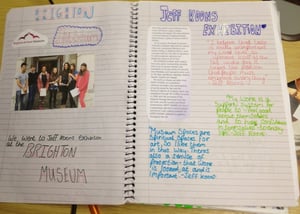 Part B (explore the arts as an audience member): The young people visited the Jeff Koons exhibition at Brighton Museum, and an art installation in the grounds of Brighton’s Royal Pavilion. The Youth Arts Project created a resource sheet for this activity which enabled the young people to complete the criteria for Part B in a fun and creative way.
Part B (explore the arts as an audience member): The young people visited the Jeff Koons exhibition at Brighton Museum, and an art installation in the grounds of Brighton’s Royal Pavilion. The Youth Arts Project created a resource sheet for this activity which enabled the young people to complete the criteria for Part B in a fun and creative way.
Part C (arts inspiration): Prior to embarking on the summer school the group were sent a work sheet outlining the aims of Part C, encouraging them to think about who might be their arts inspiration, and to begin research. They were also reminded about this on day one and a laptop and printer were available for anyone who needed extra support or wanted to research in their lunch hour.
Part D (arts skills share): The last morning of the summer school was allocated to Part D. Using Arts Award templates, participants planned their skill sharing activity by choosing a game, exercise or arts activity they learned during the week, or an arts skill they already had. They then took it in turns to deliver their arts skill and used feedback sheets to comment on each other’s work. They used a second template to reflect on how they felt their own activity went.
Evidence
The young people and advisers took lots of photographs through the week to use as evidence in portfolios. A laptop and printer were made available so that work could be created and added to portfolios immediately. The high adviser to young person ratio meant that anyone who needed to have a scribe or had additional needs could have one to one support when creating evidence for their portfolios.
Cultural Partnerships
The Youth Art Project has built a successful partnership with Brighton Museum which hosts the summer school in their venue, providing a creative and inspiring setting for the young people’s work. Due to this partnership with the museum the young people were able to access the exhibition they visited for Part B free of charge.
Funding
The summer school is funded through the Local Authority as the Arts Project sits within Brighton and Hove Youth Service.
Impact
The valuable mixture of art forms available during the summer school, and the opportunity for the young people to engage with peers of all abilities has had a great impact on the participants.
One young woman with learning disabilities who took part in the summer school was thrilled not only to achieve her Bronze Arts Award but also to take part in a mixed ability group where she felt she was accepted.
She was about to leave the special school she attended and go to college. Her parents said, “Taking part in this project and passing her Bronze Award has really helped with her transition from school to college, as well as boosting her confidence.”
Youth Arts Development Worker and Arts Award Adviser Julia Box said: “The Arts Award has enabled me to offer accreditation to young people who might not otherwise have any qualifications. It recognises their amazing achievements outside of formal education and is another tool that we can use to engage more vulnerable young people.”
"Looking round the Jeff Koons exhibition and having to really think about what I liked and didn’t like so I could tell someone else about it has made me really think about art and made me look at things more closely." Arts Award participant
"Doing my Arts Award with a group of other people has built my confidence, making me feel less shy about giving my opinion and speaking in front of everyone." Arts Award participant
"I found it difficult to teach my game to the group for Part D, as I got a bit nervous, but they were really helpful and that made me feel better, I think it went alright in the end." Arts Award participant
Related posts
BY: Guest Writer
BY: Alan Lynch

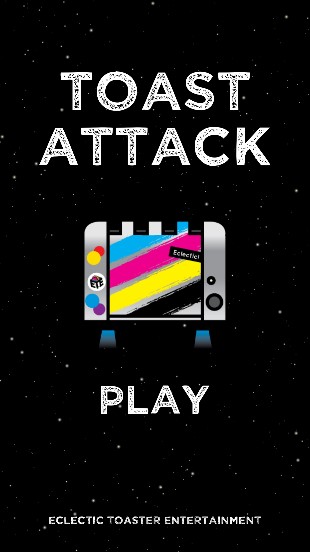
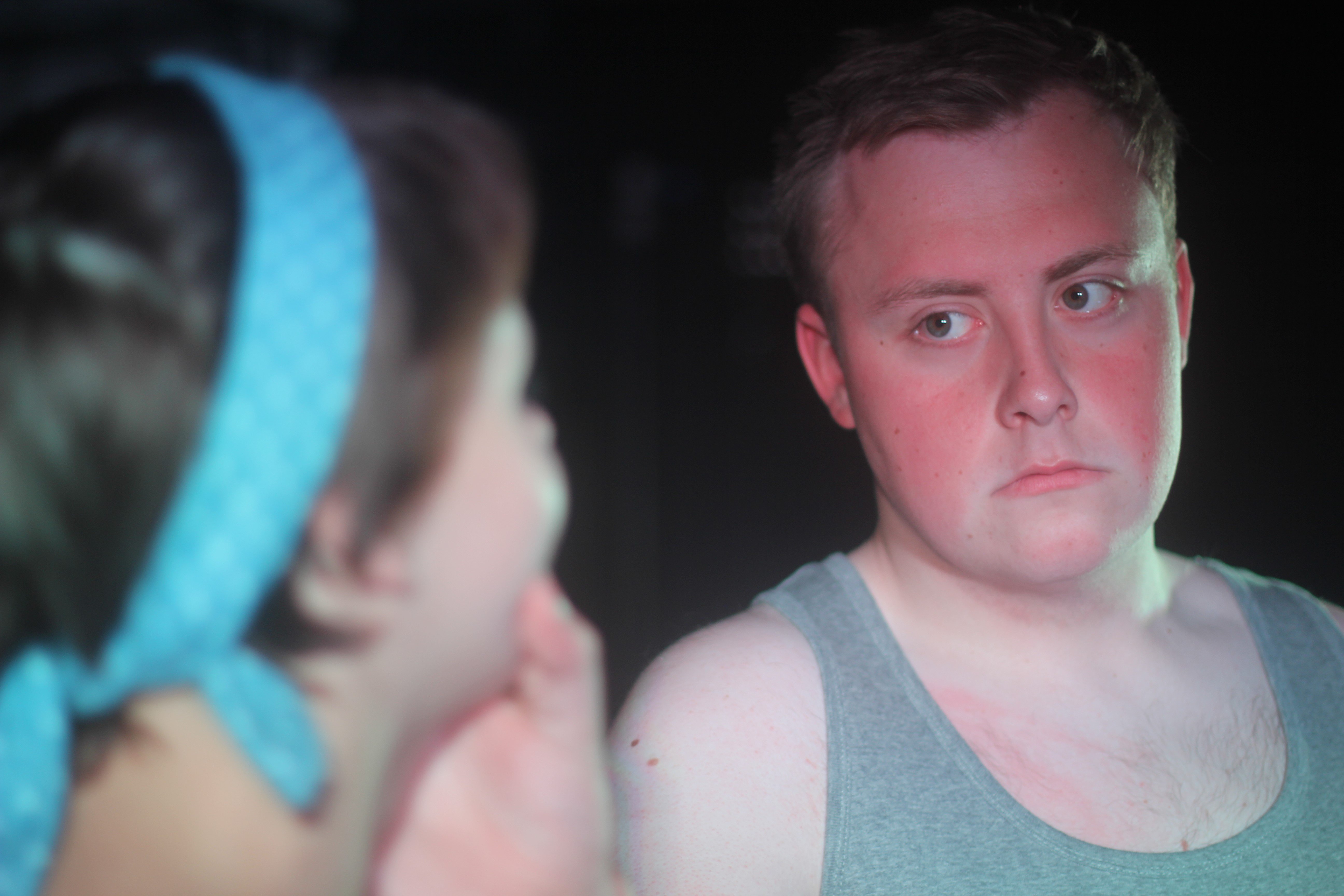
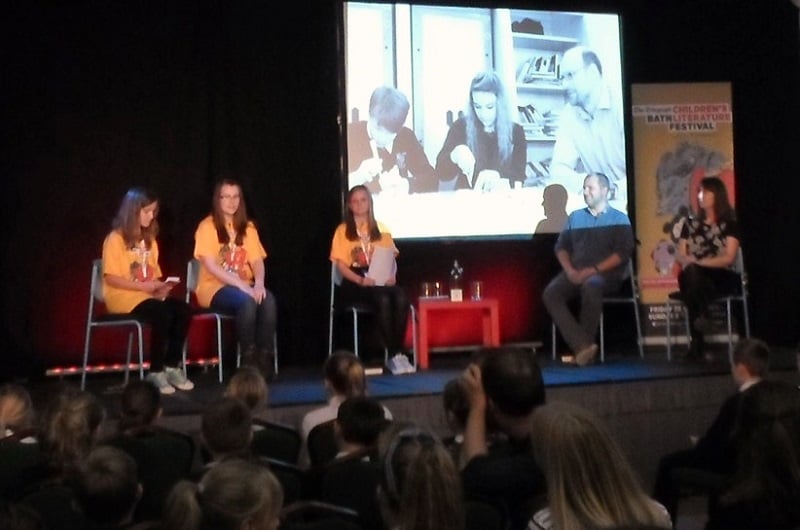
Comments & Replies